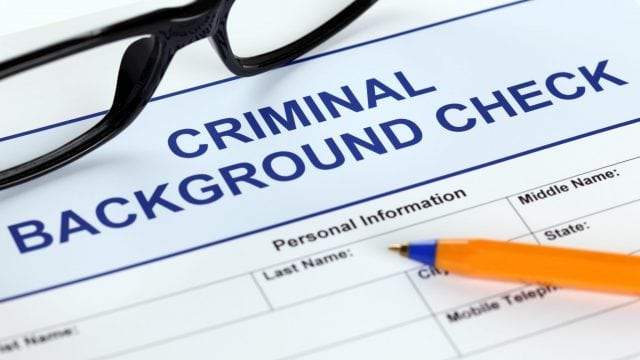If you have a criminal record, you already know how difficult it can be to find gainful employment. A criminal record can also be big stumbling block when it comes to finding housing. Many private landlords and public housing projects have policies against renting to individuals with criminal records. However, following new guidance published by the Department of Housing and Urban Development (HUD) cautions landlords that while refusing to rent to a convicted felon may be justified in certain circumstances, a blanket policy of refusing to rent to someone based on their criminal record may violate the Fair Housing Act.
One in four Americans has a criminal record, with varying degrees of severity. HUD notes that with the dawn of the Internet, landlords have the ability to search records quickly and easily, or to pay a third party to conduct a search. However, these records are not always accurate- they may include arrests that never led to conviction or include disorderly or petty offenses that have no bearing on a person’s quality as a tenant. Further HUD points out that criminal history-based restrictions are likely to disproportionately affect African-Americans and Hispanics.
Landlords must be able to show that their rental policies legitimately serve to protect safety or property. Simply saying that criminals are bad tenants is not a legitimate basis to deny housing. HUD counsels landlords to have a policy that takes into consideration the underlying facts about the crime, such as what type of offense it was, how long ago it happened, and other relevant factors, so as to avoid illegal racial discrimination. However, convictions for manufacturing or distributing drugs are not subject to the same type of scrutiny from HUD- therefore, if you have that type of conviction, a landlord may reject you as a tenant on that basis. If a landlord can show that their policy is about keeping the community safe (and not about keeping a particular person out of a home), it will be upheld. Ultimately, landlords should conduct a case-by-case evaluation of prospective tenants.
For example, in 2018 in Brick Township, Ocean County, New Jersey, local officials proposed an ordinance that would require landlords to conduct a criminal background check on every prospective tenant, and present proof that the check had been conducted in order to obtain a certificate of occupancy. The proposed check would have required landlords to screen for any landlord/tenant cases in the Superior Court where the renter last lived, municipal court convictions where the renter last lived, and conviction records from the state Superior Court where the renter last lived (whether in New Jersey or out of state). While proof of the check would be submitted to township authorities, the records themselves would remain with the landlord. However, as of June 2018, the proposed ordinance was no longer being pursued, amid concerns that it violated the Fair Housing Act, and placed too great of a burden on landlords.
If you have a criminal record, the best way to avoid being rejected for housing may be to obtain an expungement. Expungement is a process through which your criminal arrests, offenses, and convictions are legally removed from public record as if it never existed, and therefore will not be viewable by potential landlords. Katherine O’Brien is an experienced New Jersey expungement attorney who will give you a realistic assessment of your expungement eligibility and answer any questions you may have about the process. Contact Katherine O’Brien Law today at 856-832-2482 or via email at katherine@katherineobrienlaw.com for a free consultation.







